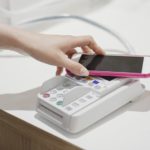No fear of wallets
Although a few years ago security was one of users' main concerns when making virtual payments, today consumers are more confident about the ubiquity of their cellphones and the payments they make, although the fears that deter them from unlimited use of their wallets include identity theft or additional charges on their purchases.

What are customers looking for with their virtual wallets? And companies? Who will win the race for the wallet market? The study entitled The Future of the Mobile Wallet: Barriers and opportunities for the next stage of the mobile payment revolution asks these questions –and others– in an analysis of one of the financial trends that looks set to revolutionize the world of payments.
The observation of Ed McLaughlin, chief emerging payments officer at MasterCard –"We know after people tap their phone to pay two or three times, they don’t go back to their old behavior"– appears to be true for the users of virtual wallets surveyed, who do so fairly frequently –between two and three times a week.
This study points out that the number of users who have joined the world of the wallet and who plan to use it in future has multiplied in the last six months. Although security is the number-one barrier to using the mobile wallet, users are gradually becoming less fearful. While in 2013 73% of users said they were concerned about security, two years later this percentage has dropped to 62%. Even so, security and concern about new charges after a purchase continue to hold back this business.
What are the fears preventing people from taking up this new payment model?
People who do not use wallets fear their identity may be stolen, and are also concerned about the theft of their personal information, loss of data and that their cellphone may be used to make transactions. Although it is not all bad news for the companies looking to wean people from cash and get them hooked on making payments with their cellphones. These apps are today becoming increasingly familiar and the fears are abating. Every day people are becoming a little more comfortable with this type of online payments, and say they are satisfied.
How can I convince someone to use a wallet?
The study claims that if the technology companies, banks, cellphone manufacturers and mobile telephone operators that are competing to acquire this business are able to guarantee that fraud or the theft of people's data or identity is 100% impossible , they will be quite willing to give up using physical money.
To achieve complete security, banks and companies are opting to change the real numbers of data on cards for encrypted ones. When someone makes a purchase, they use the number of the device together with the security code, so they don't share the actual card numbers with the vendor, nor are they transmitted when the payment is made. This means they do not need to show the credit or debit card and reveal their identity –an additional layer of privacy that guarantees that this information is never lost and is always completely private.
The key year
2015 is the year mobile payments are set to take off. 15% of people have used wallets in the last six months, and 22% plan to use them in the next six months. Companies are already offering discounts or other types of incentives to capture more customers. According to data from PwC, “what is at stake in this strategic tug-of-war is a market amounting to no less than 20 billion dollars”. The study, entitled Payments, a landscape in motion, also highlights that banks are the payment processing agents that inspire most confidence in consumers. There are three main characteristics to succeed in capturing this coveted market:
- The support of the leading banks. This ensures trustworthiness and convenience, particularly in the case of your own bank, because you don't have to change your money from one place to another to make payments.
- A streamlined (no complicated passwords) and secure (absolutely failsafe if the device is stolen, or in the case of identity theft) identification system.
- Versatility. In other words, it can be used in all types of commercial establishments (physical and virtual).
The barriers are coming down, and consumers are beginning to switch. The market is now starting to gather momentum, and the sights are firmly set on conquering the payments market. In both the United States and in other continents. Proof of this is the 400,000 European users that already have BBVA Wallet.